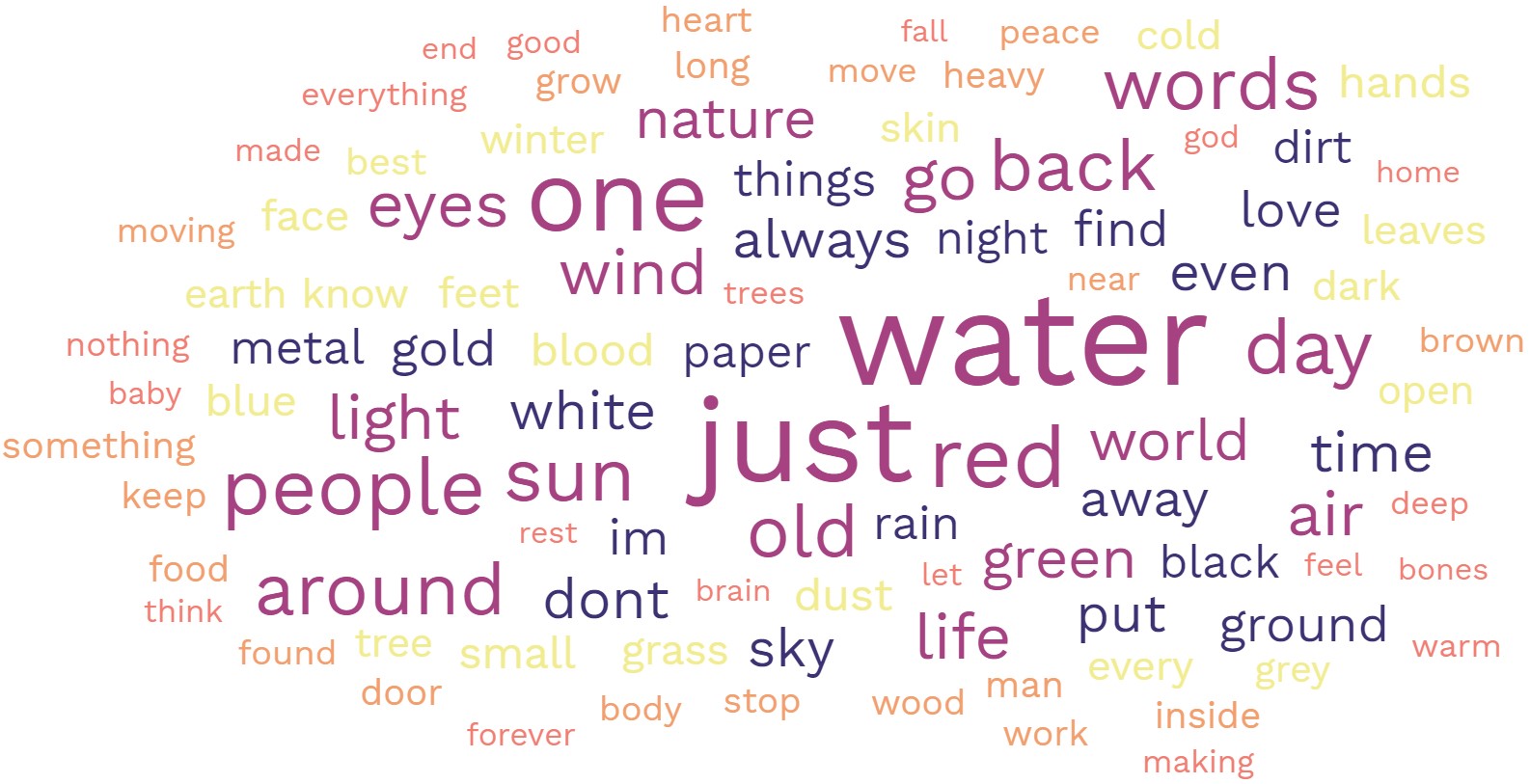Surprise in Poetry
5/11/19
In this article I will talk about just one aspect of what I believe makes a good poem: surprise. To me, surprise is something happened that you did not expect to happen. You typically walk away from the poem thinking "Wow, that was really cool/interesting, never seen that before", and it is memorable because of that. The poem makes a good impression.
So I brainstormed ways to get more of the surprise factor in my poems. Here is a short list, and I will expand on a few of these:
- use of a large vocabulary/dictionary
- random selection/combination of words
- if searched word/phrase in poem does not show up in Google search, or only shows up a few times perhaps
- different/new structure of poem
- coining new verbs/nouns
- poems with 'emotional content'
- interesting viewpoint/way of thinking
- observation of trifles (ie. attention to the small stuff that others overlook)
- word/imagery that connects with the reader
First, note that some of these things are under our control, at least somewhat. For example, we can choose dictionaries, combinations of words, coin our own words, and so on. We cannot ensure we connect with the reader, however. A factual poem about my mom's death will be incredibly meaningful to me and move me to tears but may just barely budge your emotional needle because you may not have the same experience in your life. And that is OK. Or, maybe at time t (2019) it does not connect with you, but at time t+1 (2020) or time t+k (2034, say) it does, because your experiences changed. The poet cannot control the sum total of what you are bringing to your reading and understanding and enjoyment of the poem.
With coining of new verbs/nouns, or words in general, this is one I wouldn't want to overuse. I wouldn't want every single poem to be "mome raths outgrabe" type of stuff, but quite obviously (?) an invented word here or there makes for a very memorable poem. The classic Jabberwocky will always be remembered as a great poem, much like Euclid's proof of an infinite number of prime numbers in Elements will always be true.
Some ways I create new words are to concatenate the selected words, or chop off a few letters from the back of the first word, and chop off a few letters from the front of the second word, and then combine what is left. For example, take "apple" and "banana". I could chop off "e" and "ba" and combine "appl" with "nana" to get "applnana". Or take "talk" and "terrorize" to make "talkorrize". Or "shopping" and "octagon" to make "shoptagon" (maybe that is what the shopping experience is in stores during Black Friday sales). You get the idea. This process can be automated by randomly selecting words, combining them in certain ways, and retaining combinations that you like for later use.
Some examples of mine are in Freeverse 94, where I have "dominofell" and "tattlerblacken" (whatever that is).
A question is, would you rather make poems knowing only 10 words or knowing 100,000 words? Consider using a large dictionary, especially if you are into using randomization. For example, if you make poems using m possible words, but someone uses n words, and n>>m (read "n is much greater than m"), the second person's poems might be more interesting because of different word choices and word orderings. Your poems might get repetative (which isn't always bad, but just something to think about).
Last, whatever you write, words or entire phrases, try searching for it in Google using quotes. When I search for "lemon drop or cyclops eye", only my Freeverse 83 poem appears. Note that doesn't mean it is "good", just that it is unique, and hints that no one has ever read "lemon drop or cyclops eye" before. There is not much surprising about a poem if we search for it and thousands of similar things appear in the search, even if it is a good poem otherwise. It might mean our poem is wondering into cliche territory. Note that my "tattlerblacken" does not appear anywhere except in my poem. My "dominofell" appears 42 other times as of writing this, but the other hits are all typos for "domino fell".
I hope this gave you some ideas on how to put the element of surprise in your poems.
Thanks for reading.
Please anonymously VOTE on the content you have just read:
Like:Dislike:
For poetry, I recommend:
- High Quality Every Day Carry (EDC) Bolt Action Pens & Pencils by Bastion. Use discount code JS20 to get 20% off!
- Shop at The Poet Life store
Please show me a randomly selected poem
